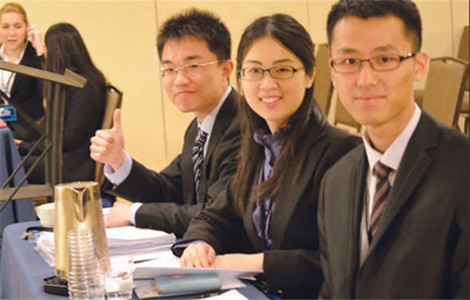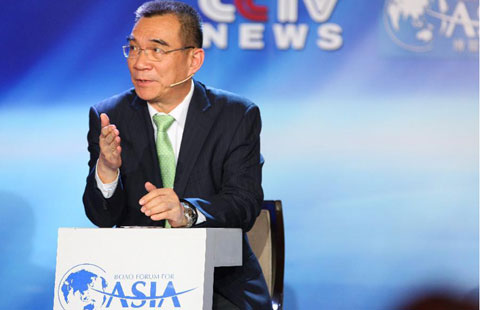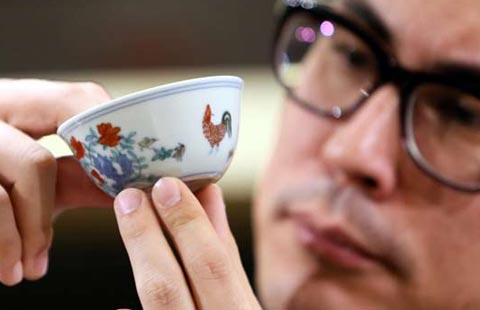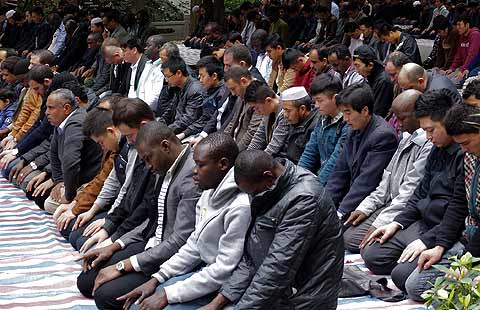Nokia sale of unit to Microsoft approved
Updated: 2014-04-09 07:15
By Yao Jing (China Daily)
|
|||||||||
The Ministry of Commerce on Tuesday agreed to conclude an antitrust investigation into the sale of Nokia Corp's devices and services division to Microsoft Corp, paving the way to boosting the two companies' business and sounding the alarm for Chinese smartphone makers.
The deal, announced in September, received approval from the European Commission, the United States Department of Justice and other jurisdictions, and is expected to close later this month.
Regulatory approval from China for the merger has been regarded as a critical final step.
Still, after a long-lasting investigation, the ministry did set some conditions on the Nokia-Microsoft deal, including stipulating that fees not be raised on its mobile phone and wireless technology patents.
"It is the most complicated case we have received since China adopted its Anti-Monopoly Law in 2008," Shang Ming, director-general of the anti-monopoly bureau of the ministry, told a news conference in Beijing. "And we have concerns that China's smartphone market will be affected to some extent."
China is a key mobile devices market, representing one-third of global sales volume. Last year, 320 million smartphones were sold in the country.
Discussions about the merger are focusing on whether the deal will help reshape the Finnish company's global business, especially in the Asian market, and buoy Microsoft's Windows Phone devices.
The acquisition is also regarded as a potential threat to local mobile phone manufacturers as Chinese vendors worry about increasing fees on patents.
"The government should work harder to control the opportunism and unfairness underlying this deal as Chinese smartphone makers are burdened with high patent fees," said Mei Xinyu, a foreign trade expert at the Chinese Academy of International Trade and Economic Cooperation, a think tank of the Ministry of Commerce.
Mei pointed to the recent antitrust case of US mobile chipmaker Qualcomm Inc, accused of abusing its dominance in wireless telecommunication copyright and chip markets.
"Qualcomm is just selling chips in the market, but it has been charging patent fees at terminal device prices," added Mei.
As for the Nokia-Microsoft case, Mei suggested the government closely supervise the deal in order to create a level playing field for all companies and a fair environment for consumers.
But analysts said the acquisition would not shake up the domestic smartphone market in the short term.
"The move will increase concerns of local mobile phone vendors, who are paying attention to overseas markets, especially the European market," said James Yan, an analyst with International Data Corp China.
"Of course, the merger will boost sales of Windows Phone devices in the global market," said Yan.
In China, however, Nokia accounts for less than 3 percent of the market, and the Windows Phone has not gained much popularity either.
Chinese smartphone buyers have been supporting local brands, according to a consumer survey by zol, the nation's largest electronics information platform.
Popularity ratings for local companies such as ZTE Corp, Oppo Electronics Corp, Xiaomi Corp, Huawei Technologies Co Ltd and Lenovo Group Ltd surged in 2013 compared with the previous year.
Nevertheless, faced with potential challenges from foreign giants such as Samsung Electronics Co Ltd and Apple Inc, Chinese players had better be well-prepared, analysts said.
"As for the overseas market, Chinese makers should focus on brand building and marketing to compete with well-known names," Yan said. Vendors also should try to develop mobile operating systems, he added.
"Further, in order to stand up to the formidable competition, Chinese mobile makers also should join together to form a patent pool to create a stronger alliance to negotiate with Western giants," said Xiang Ligang, a Beijing-based telecom expert.
In a statement issued on Tuesday, Nokia said the entire regulatory approval process involved a "thorough review" of the company's licensing practices.
Currently, Nokia remains in a dispute with tax authorities in India. Nokia has said that dispute won't affect the closing of the Microsoft deal.
In September, Microsoft announced its $7.2 billion acquisition of the Nokia mobile phone business, with $5 billion to acquire equipment and services, and $2.2 billion to have access to Nokia's patent licensing for 10 years, according to the original plan.
As part of the deal, Microsoft will bring aboard 32,000 Nokia employees, including Chief Executive Officer Stephen Elop.
Shen Jingting and Reuters contributed to this story.
yaojing@chinadaily.com.cn
(China Daily USA 04/09/2014 page13)

 Chinese schools vie in moot court
Chinese schools vie in moot court
 Australian divers start underwater search for MH370
Australian divers start underwater search for MH370
 Cleaver-wielding man subdued after tense standoff
Cleaver-wielding man subdued after tense standoff
 Pro-Russian demonstrators announce Kharkov's independence
Pro-Russian demonstrators announce Kharkov's independence
 Breakdancer 'freezes' in front of Paris landmarks
Breakdancer 'freezes' in front of Paris landmarks
 TV Debate in Boao Forum for Asia Annual Conference
TV Debate in Boao Forum for Asia Annual Conference
 Ming Dynasty 'chicken cup' sells for record $36 million
Ming Dynasty 'chicken cup' sells for record $36 million
 Simply child's play
Simply child's play
Most Viewed
Editor's Picks

|

|

|

|

|

|
Today's Top News
Rwandans told 'never again'
Kim Jong Un reelected first chairman of NDC
Blast kills 23 in market on edge of Pakistani capital
Cross-border deals headed south?
Two more 'pings' detected in search for MH370
China urges US to restrain Japan
Moscow warns Kiev of 'civil war'
Asia Society in NYC launches think tank
US Weekly

|

|








